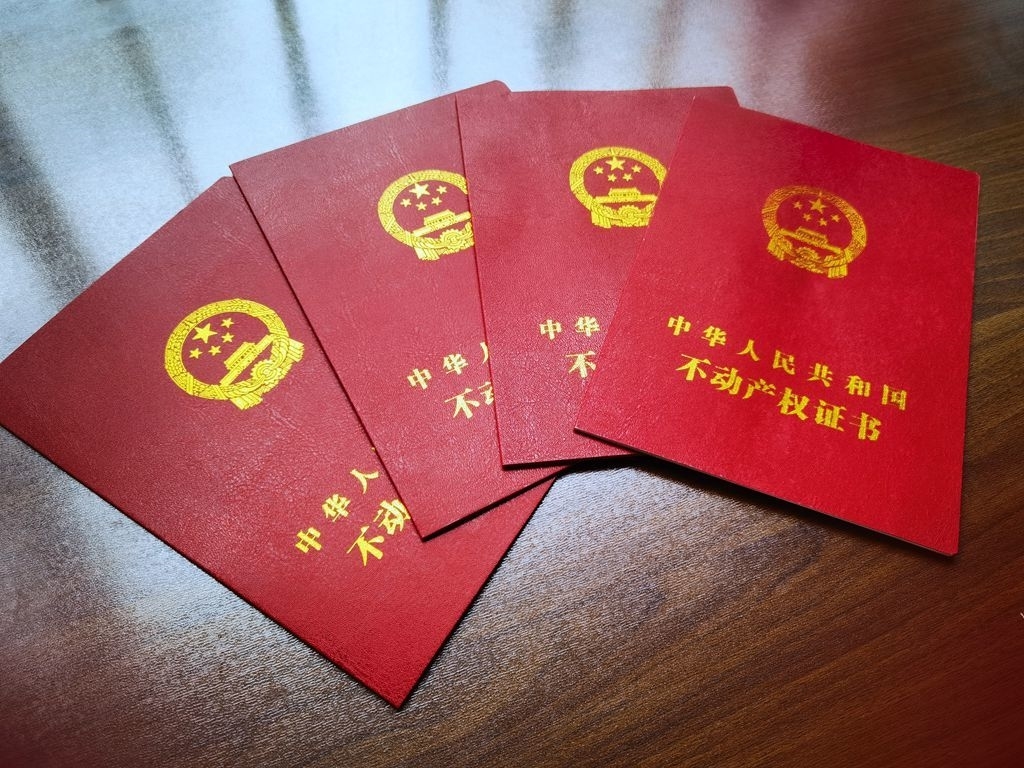Real estate in China: A Foreigner’s Ultimate Guide
Thinking about China might bring to mind ancient temples, bustling cities, and incredible food. But what about the property market? You might be curious. Maybe you’re moving here for work. Or perhaps you’re just fascinated by China’s rapid development. Whatever your reason, you’ve landed in the right place.
At Travel China With Me, we’re usually guiding you through stunning landscapes. But today, we’re taking a different kind of tour. We’re exploring the complex world of real estate in China. This isn’t your typical travel topic. It’s a journey into the heart of the modern Chinese economy. We’ll break down everything for you. From who can buy property to how the market is changing. Let’s dive into the essential guide for any foreigner eyeing property in China.
Table of Contents
Can a Foreigner Even Buy Property in China?

Yes, but with important rules. This is the first question most people ask. The short answer is yes, foreigners can purchase property in China. However, the process is regulated. The Chinese government has specific stipulations in place, primarily outlined in official documents like the Opinion on Regulating the Access and Administration of Foreign Investment in the Real Estate Market.
The Core Requirement: One Year of Work or Study
To be eligible, you must prove a connection to China. You need to have worked or studied in the country for at least one year. This rule is designed to ensure property is bought for residential purposes, not overseas speculation. You’ll need to provide official documents. This could be your employment contract and tax records, or a certificate from your university.
For Self-Use and a Limit of One
Another key point is the property’s purpose. The property you buy must be for your own residential use. You cannot operate it as a rental business as a foreign individual. Furthermore, you are generally limited to owning just one residential property within a specific city. This policy helps maintain market stability.
Commercial vs. Residential Property
The rules are different for commercial real estate. Foreign individuals and companies can often invest in commercial properties with fewer restrictions. This includes offices, retail spaces, and other business-related assets. However, for most people reading this, the focus is on residential homes. That’s where the one-year and self-use policies strictly apply.
So, the door isn’t closed to foreigners. But you need to follow the path set by the government. It’s about showing your commitment to living in China, not just parking capital here.
Understanding Property ‘Ownership’ in China: The Leasehold System

Here’s where things get really different from most Western countries. In China, you never truly own the land your home is built on. This concept is fundamental to the entire market.
All Land is State-Owned
All land in the People’s Republic of China is owned by the state. It’s a core principle of the country’s system. When you “buy” a property, you are not buying the land itself. Instead, you are purchasing a long-term lease, a “Land-Use Right,” from the government.
Leasehold Periods: What Do You Actually Get?
The government grants these land-use rights for a set period. This is the asset you are buying. The length of the lease depends on the land’s designated purpose.
- Residential property: The lease is for 70 years.
- Commercial property: The lease is typically 40 years.
- Industrial property: The lease is often 50 years.
What Happens When the 70-Year Lease Expires?
This is a multi-billion dollar question. China’s modern real estate market only began in the late 1990s, so the first 70-year leases have not yet expired. However, this is no longer a legal grey area. China’s Civil Code (民法典), which took effect in 2021, provides clarity.
Article 359 of the Civil Code states that the land-use rights for residential construction will be renewed automatically upon expiration. While it mentions a fee might be payable for the renewal, the consensus is that this fee will be symbolic rather than the cost of a new lease. This legal guarantee has provided significant reassurance to homeowners across the country.
Market of Real Estate in China in 2026: A New Chapter

China’s property market is a global headline-maker. It has fueled incredible growth but has also faced a historic downturn. Understanding the current climate is vital.
From Unstoppable Growth to a Sharp Correction
For decades, Chinese real estate was on a relentless upward climb. It was a primary engine of the Chinese economy. For many families, property represented their largest asset. This belief in ever-rising prices led to massive construction booms.
The Government’s Intervention: The “Three Red Lines”
Around 2020, the government grew concerned about a potential housing bubble and immense developer debt. They introduced the “Three Red Lines” policy. This was a strict set of financial rules that severely restricted developers’ ability to borrow money.
This policy triggered a major liquidity crisis. Giants like Evergrande and Country Garden defaulted on their debts, sending shockwaves through the global financial system. Construction stalled on millions of pre-sold homes. Consumer confidence plummeted, and property prices in many cities began to fall.
The Market Today: A Period of Stabilisation
As of 2026, the market is in a new phase. The sharp correction is largely over, and the government’s focus is now firmly on stabilization. A wave of powerful support measures has been unleashed since 2023.
- Lower Mortgage Rates: Both new and existing mortgage rates have been cut to historic lows.
- Reduced Down Payments: The minimum down payment for first-time buyers has been lowered to as little as 15% in many cities.
- Policy Easing: Major cities have scrapped restrictive policies like the “认房又认贷” rule (which penalized buyers who had a mortgage history, even if they didn’t own a property).
- Support for Developers: The government is funneling funds to ensure that stalled housing projects are completed and delivered to buyers.
For a potential buyer, this means the market is no longer a speculative frenzy. It’s a buyer’s market in many areas. Prices are more reasonable, and you have more negotiating power. The focus has shifted from “buy anything” to “buy quality.”
The Step-by-Step Process of Buying a Home in China

So, you meet the requirements. You understand the leasehold system. You’ve assessed the market. Now, how do you actually buy a property? The process is methodical.
Step 1: Find Your Property and Agent
First, you need to find a home. Working with a reliable real estate agent is essential. Major agencies like Lianjia (链家) and Centaline Property (中原地产) have a strong presence and are experienced with foreign clients. Online portals like Anjuke (安居客) and Beike (贝壳) are also excellent resources.
Consider your needs carefully. Proximity to your workplace, international schools, and public transport are key factors in sprawling Chinese cities.
Step 2: The Preliminary Agreement and Deposit
Once you find a place, you’ll sign a preliminary purchase agreement. This is a formal offer letter. You will pay an initial deposit (定金, dìngjīn) to secure the property. This deposit is usually binding. If you, the buyer, back out, you lose the deposit. If the seller backs out, they must typically return double the deposit amount.
Step 3: Due Diligence is Non-Negotiable
This step is critical. Your agent must help you conduct due diligence. For a second-hand home, this means verifying the seller’s identity and their Property Ownership Certificate (不动产权证书, Búdòngchǎn Quán Zhèngshū). You must ensure the property is free of mortgages, liens, or other legal disputes. For a new property from a developer, you must verify they have all five necessary sales permits.
Step 4: Signing the Official Sales Contract
This is the main legal document. In major cities, this is a standardized contract issued by the local housing authority. It details the price, payment schedule, and handover date. We strongly recommend hiring a lawyer to review this contract. Even if your Chinese is fluent, legal terminology is a different beast. A lawyer is your best protection.
Step 5: Securing a Mortgage (The Foreigner Challenge)
Getting a mortgage from a Chinese bank is possible but can be challenging. You’ll need an extensive list of documents:
- Passport and valid residence permit
- Official employment contract and company letter
- Proof of income (tax receipts and bank statements for at least 6-12 months)
- The signed sales contract
Major banks like the Bank of China, ICBC, and China Construction Bank have experience with foreign clients. Be prepared for a lower loan-to-value (LTV) ratio than a local citizen might receive. You may need a larger down payment.
Step 6: Paying Taxes and Fees
Several taxes and fees are involved. The structure is complex and varies by city, property price, and property age. Below is a detailed table.
Tax/Fee | Who Typically Pays | Approximate Rate & Key Conditions |
|---|---|---|
Deed Tax (契税) | Buyer | 1% – 3%. For a first-time buyer of a home <90m², it’s 1%. For a home >90m², it’s 1.5%. For a second home, it’s typically 3%. |
Value-Added Tax (VAT) (增值税) | Seller | 5.6% of the sale price. EXEMPT if the property was owned for over 2 years (“满二”). |
Individual Income Tax (个人所得税) | Seller | 1% of the total sale price OR 20% of the capital gain. EXEMPT if owned for >5 years AND it’s the seller’s only property (“满五唯一”). |
Stamp Duty (印花税) | Buyer & Seller | 0.05% each. (Note: Often waived for individuals on residential sales). |
Real Estate Agent Fee (中介费) | Buyer & Seller (Split) | Total fee is typically 2% – 3% of the property price. The split is negotiable. |
Note: These are standard rates. Always verify the exact local policies for your city at the time of purchase.
Step 7: Title Transfer and Your Red Booklet
The final step is registering the deed. You, the seller, and your agents will go to the local Real Estate Transaction Center (房地产交易中心). You’ll submit all documents and pay the taxes. After processing, which can take a few weeks, you will be issued your official Property Ownership Certificate. This red booklet (or card, in some cities) is the ultimate proof of your property rights in China.
First-Tier vs. Lower-Tier Cities: Where Should You Buy?

China is a vast country. The real estate market in Shanghai is worlds apart from that in a smaller provincial city.
Tier 1 Cities: Beijing, Shanghai, Guangzhou, Shenzhen
These are China’s global megacities. They are the economic and cultural powerhouses.
- Pros: Strongest job markets, world-class amenities, large expat communities. Properties here are considered the safest long-term assets.
- Cons: Prohibitively expensive. Prices are on par with global capitals. Purchase restrictions are incredibly strict. For instance, non-local residents in Beijing may need to show five consecutive years of social security and tax payments.
New Tier 1 & Tier 2 Cities: Hangzhou, Nanjing, Chengdu, Suzhou
These are dynamic provincial capitals and major economic hubs.
- Pros: More affordable than Tier 1. They offer an excellent quality of life, rich culture, and booming job markets, especially in tech.
- Cons: Prices have risen fast. The market can be more volatile compared to the established Tier 1 cities.
Tier 3 and 4 Cities
These are smaller prefecture-level cities and county towns.
- Pros: Far more affordable housing. A slower pace of life and a more immersive cultural experience.
- Cons: Fewer job opportunities for foreigners. The property market can be risky due to oversupply issues in some areas.
Your choice of city will depend entirely on your career, lifestyle, and budget. Most expats working for multinational companies will find themselves in Tier 1 or strong Tier 2 cities.
READ ALSO: Chinese Cities with the Most Foreigners: An In-depth Analysis and Travel Guide
Unique Aspects of China’s Property Market

Beyond the rules, there are cultural norms to understand.
The Obsession with “Chaoxiang” (朝向) – Orientation
The direction a property faces is paramount. South-facing units are the gold standard. They receive maximum sunlight in winter and are considered to have better feng shui. A south-facing apartment can command a premium of 5-10% over an identical north-facing one in the same building.
“Mao Pi Fang” (毛坯房) – The Bare Concrete Shell
Many new apartments are sold as “bare shells.” This means you get a concrete box with windows. There’s no flooring, no paint, no kitchen, and often no interior walls or plumbing fixtures. You are responsible for the entire interior fit-out (装修, zhuangxiu). While this offers creative freedom, it is a significant additional cost and project. Fully-finished apartments (精装房, jingzhuangfang) are becoming more common, so always clarify the delivery standard.
School Districts: The Ultimate Price Driver
Access to elite public schools is determined by your registered home address. This creates a hyper-localized market. An old apartment in a top school district can cost more than a luxury villa elsewhere in the city. This is a primary driver of property values for Chinese families.
Risks and Challenges for Foreign Buyers
Buying a home in China can be a great experience, but you must be clear-eyed about the challenges.
- Policy Risk: The government can and does change the rules. Restrictions can be tightened or loosened with little warning. This is a fundamental risk of the market.
- Capital Controls & Repatriation: China has strict controls on moving money. When you eventually sell your property, getting the funds out of China is a major hurdle. You must meticulously document everything. You’ll need the original purchase contract, the final sales contract, and all tax receipts to prove to the State Administration of Foreign Exchange (SAFE) that the funds are legitimate. The process can take months.
- Language & Legal Barriers: The entire process is in Mandarin. All legal documents are in Chinese. You absolutely need a trustworthy, bilingual agent and an independent lawyer. Do not rely solely on the developer’s or seller’s representatives.
- Construction Quality: While standards have improved, the boom years saw some shoddy construction. For new properties, choose reputable developers with a long track record. For older properties, get a thorough inspection.
Final Thoughts: Is Buying Property in China a Good Idea for You?
Owning a home in China can give you a deep sense of connection to the country. It provides stability for you and your family during your time here. For many years, it was also a foolproof investment.
Today, the investment calculus has changed. The market is maturing. It is undergoing a necessary, though sometimes painful, deleveraging process. We believe you should view buying property here primarily as a lifestyle and housing decision, not a short-term financial speculation.
If you are committed to living in China for the medium to long term, and you meet the legal requirements, buying a home can be a very sound decision. It can protect you from rising rents and allow you to build a true home base.
The journey requires diligence, patience, and expert advice. But for many, planting roots in this dynamic nation is a dream worth pursuing.

Frequently Asked Questions (FAQ)
Q1: Can I buy a house in China on a tourist visa?
No, you cannot. You must hold a long-term residence permit based on at least one year of continuous work or study in China to be eligible to purchase one residential property for self-use.
Q2: What is the typical down payment for a foreigner?
While recent policies have lowered the minimum down payment to 15-20% in many cities for first-time buyers, banks may apply stricter risk assessments for foreign nationals. It is prudent to budget for a down payment of at least 30% of the purchase price.
Q3: How do I transfer a large sum of money to China for the down payment?
You can wire the funds from your overseas bank account to your Chinese bank account. You must clearly state the purpose of the remittance is “for property purchase.” The Chinese bank will require documentation to receive the funds. It is crucial to coordinate with your bank in China before initiating the transfer.
Q4: What happens if I leave China after buying a property?
You retain your land-use rights for the full term of the lease. You can keep the property for your use when you visit. However, as a non-resident foreign individual, you generally cannot legally rent it out. If you decide to sell, you must either return to China to handle the transaction or appoint a trusted representative with a notarized Power of Attorney.
Q5: Is the Chinese property market going to collapse?
A full-scale “collapse” on the level of the 2008 US subprime crisis is unlikely. The Chinese government has extensive control over the financial system and has demonstrated its willingness to intervene to ensure stability. However, the era of guaranteed, rapid price appreciation is over. The market is now in a new phase, likely characterized by stability, modest growth in prime locations, and potential price declines in less desirable areas or oversupplied cities.








